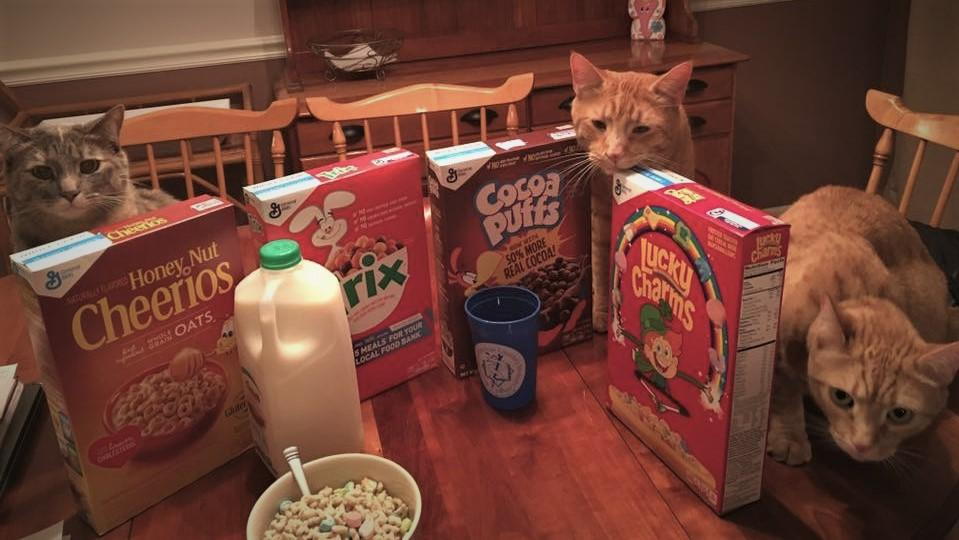Can My Cat Eat That?! Understanding Feline Nutritional Requirements

- posted: Aug. 02, 2019
Can my cat eat that?!
Part 1 Understanding feline nutritional requirements
As a veterinarian, pet mom, and consumer today, there are endless options for just about anything you can imagine. Since this article’s title insinuates food, cat food and cat nutrition, will be reviewed. But wait! There are so many aspects to cats alone, much less their dietary requirements. They really are not small dogs! And so, this first blog will be the first of a miniseries on feline nutrition. Look out Netflix, “Can my cat eat that?!” may just be the next big entertainment buzz!
Cats are obligate carnivores – yeah most of us know that. Their long and sharp canine teeth, as well as their premolars and molars are made for tearing meat and swallowing it whole. Compared to the dog jaw, the cat jaw does not have a side to side movement. Watch your cat eat…they rarely chew or grind their kibble, but rather swallow it whole. Even wet food chunks are swallowed whole, I mean, the meat chunks are already torn apart.
A well-balanced diet for our kitty friends must include good quality protein, carbohydrates, and fats; this is true for all mammals; of course, all things in moderation. Felines use proteins for energy, carbohydrates are stored for later use, and fats are broken down to smaller components to aide in metabolic processes. A quick note on grain free diets: grain free diets still have carbohydrates! And unfortunately, what those diets lack in grains, they add to your pet’s waste line in excess calories.
Pet food labels can be overwhelming, misleading, and incredibly tricky to navigate and understand. And quite frankly, sometimes the marketing schemes employed by the company are better than the overall quality of the food in the bag. AAFCO requirements are listed on the side of every food bag, however these nutritional requirements are only the minimum percentage for either wet or dry food.
Rather than focusing on the ingredients, the World Small Animal Veterinary Association (WSAVA) recommends pet parents call the food company and ask some questions! We want you to be involved in your pet’s nutritional needs! WSAVA pet food questionaire
So, what type of food is best for your cat? Well, that depends! Age and health needs vary for every cat. Even in the same household there are cats which need to be fed different diets for health purposes. This can be frustrating for you, the pet parent, but let me tell you it can be done. We’ll explore feline feeding behaviors in a future blog.
Remember that choosing the right cat food can be tricky! It’s ok to seek out some information from Dr Google; however, be mindful that the internet can be a scary place where amateur opinions are construed as facts. Feeding the best quality pet food for your cat does not need to break the bank. Don’t hesitate to contact your veterinarian for more information regarding your kitty’s purrfect nutritional needs.
Article by: Nikki Waltemire, MLAS, DVM, MBA >’’<
This blog brought to you by the Patton Veterinary Hospital serving Red Lion, York and the surrounding communities.
Location
Patton Veterinary Hospital
425 E Broadway
Red Lion, PA 17356
